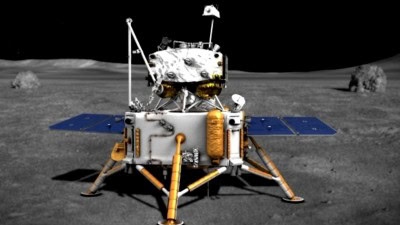By Gokul Bhagabati
New Delhi, Dec 21 : If one thing triumphed in 2020 despite all the challenges, it was science. While scientists from around the world worked at a break-neck speed to find a solution to beating Covid-19, the pandemic could not slow down the human pursuit to explore space objects.
This year specially proved to be great for bringing back samples from distant space objects that can significantly augment our understanding of the evolution of the universe.
Chinese scientists achieved a great feat towards the end of the year when its Chang’e-5 probe retrieved about 1,731 gram of samples from the Moon.
The Japan Aerospace Exploration Agency (JAXA) in mid-December announced that its Hayabusa2 spacecraft successfully brought back samples from asteroid Ryugu.
NASA’s first asteroid sample collection mission, the OSIRIS-REx probe, also completed the most challenging phases of its mission after it successfully stowed samples of asteroid Bennu this year. The spacecraft is targeting delivery of the sample back to Earth in September 2023.
In July, the US space agency also launched the Mars 2020 Perseverance rover which will seek signs of ancient life and collect rock and soil samples for possible return to Earth.
In fact, in December, NASA announced that it had approved the Mars Sample Return (MSR) multi-mission effort to advance to the next phase in preparation to bring the first pristine samples from Mars back to Earth.
Other major discoveries of the year included finding of a possible marker of life on Venus, a planet which has not been a significant part of the search for alien life because of its extreme temperatures, atmospheric composition and other factors.
In a study published in the journal Nature Astronomy, astronomers reported finding the presence of a chemical called “phosphine” in the atmosphere of Venus. The discovery surprised scientists as on Earth this gas is known to be produced by bacteria.
The team believes their discovery is significant because they can rule out many alternative ways to make phosphine, but they acknowledge that confirming the presence of “life” on Venus needs a lot more work.
In another major discovery that bears significance for future human missions to Moon and Mars, NASA in October said it found traces of water on a sunlit surface of the Moon for the first time.
The discovery was made using Stratospheric Observatory for Infrared Astronomy (SOFIA), a joint project of NASA and the German Aerospace Centre.
The results published in the journal Nature Astronomy furthers the case that water is not limited to Moon’s cold shadowed regions and may be distributed across the lunar surface.
No less significant are achievements of SpaceX, a private aerospace company of tech billionaire Elon Musk who aims to make humans interplanetary species.
SpaceX became the first private US company to transport NASA astronauts to space.
This is the year NASA finally certified SpaceX to carry astronauts to and from the International Space Station (ISS) on its Crew Dragon spaceship.
Several critical events paved the way for this achievement, including grounds tests, simulations, uncrewed flight tests and NASA’s historic SpaceX Demo-2 test flight in the middle of the year with astronauts Robert Behnken and Douglas Hurley.
Indian-American astronaut Raja Chari will be among four astronauts who will serve as crew members for SpaceX Crew-3 mission to the ISS which is expected to launch in the autumn of 2021.
This will be the first spaceflight for Chari, who became a NASA astronaut in 2017.
Notably, Chari, whose father Sreenivas V. Chari immigrated from Hyderabad, is also among the 18 astronauts selected by NASA to form the Artemis Team and help pave the way for the next lunar missions, including sending the first woman and next man to walk on the lunar surface in 2024.
The pandemic, it now appears, did exert some strains on the works of the scientists, but it could not stop their efforts in making new discoveries about the worlds far away from us.
(Gokul Bhagabati can be contacted at gokul.b@ians.in)
Disclaimer: This story is auto-generated from IANS service.

